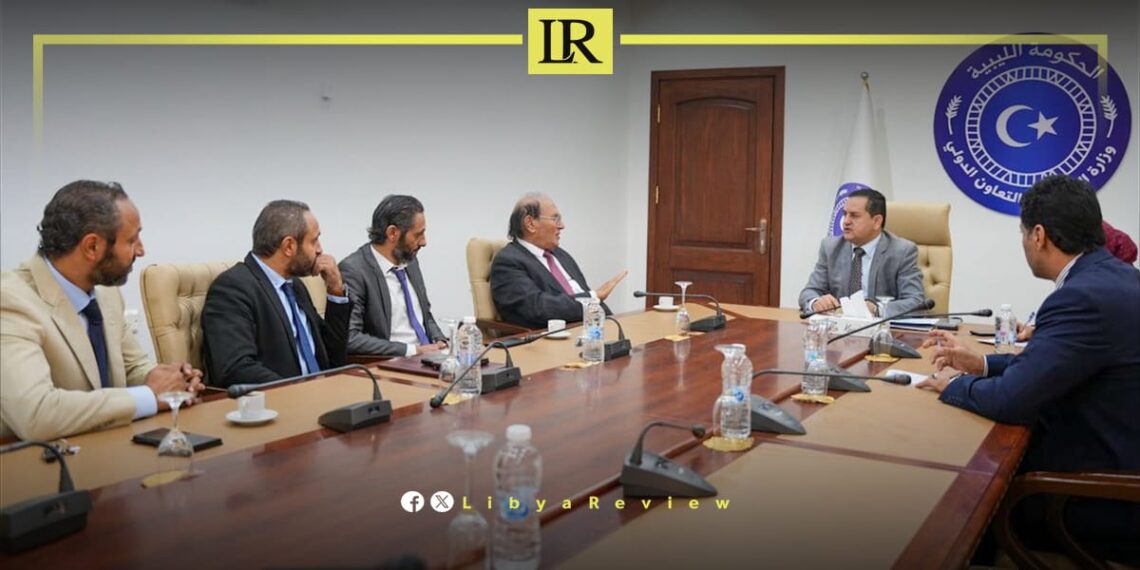Libya’s Minister of Foreign Affairs and International Cooperation, Abdelqader Al-Hwaij, received Ali Ibrahim, Secretary-General of the Arab Pharmacists Union, at the ministry’s headquarters in Benghazi on Thursday. The Union is headquartered in Cairo.
The reception came at the conclusion of the Executive Office meeting of the Arab Pharmacists Union and the General Scientific Council of the Arab Pharmacy Board, held in Benghazi from 13 to 16 September 2025. The sessions were organized under the auspices of the Libyan Prime Minister’s Office and the Ministry of Foreign Affairs and International Cooperation.
Ali Ibrahim praised the security, stability, and development witnessed in Benghazi, while expressing gratitude for the hospitality extended throughout the meetings.
He also commended the Foreign Ministry’s support in strengthening the Union’s mission to secure a healthier future and ensure safe pharmaceutical care for citizens across the Arab world.
Libya has been in chaos since a NATO-backed uprising toppled longtime leader Muammar Gaddafi in 2011. The county has for years been split between rival administrations.
Libya’s economy, heavily reliant on oil, has suffered due to the ongoing conflict. The instability has led to fluctuations in oil production and prices, impacting the global oil market and Libya’s economy.
The conflict has led to a significant humanitarian crisis in Libya, with thousands of people killed, and many more displaced. Migrants and refugees using Libya as a transit point to Europe have also faced dire conditions.
The planned elections for December 2021 were delayed due to disagreements over election laws and the eligibility of certain candidates. This delay has raised concerns about the feasibility of a peaceful political transition.
Despite the ceasefire, security remains a significant concern with sporadic fighting and the presence of mercenaries and foreign fighters. The unification of the military and the removal of foreign forces are crucial challenges.


